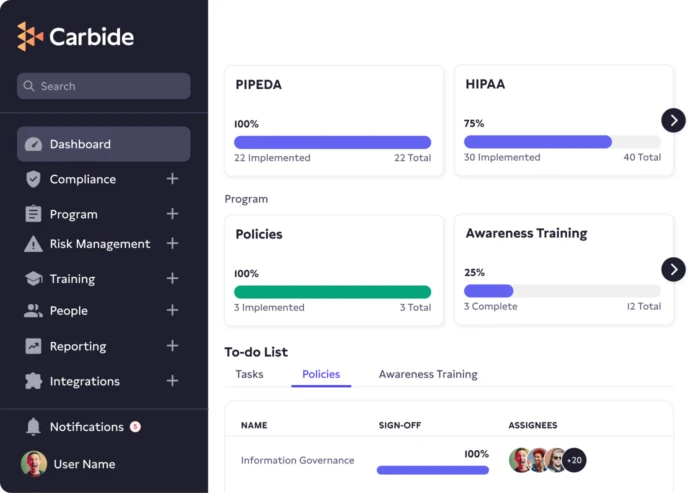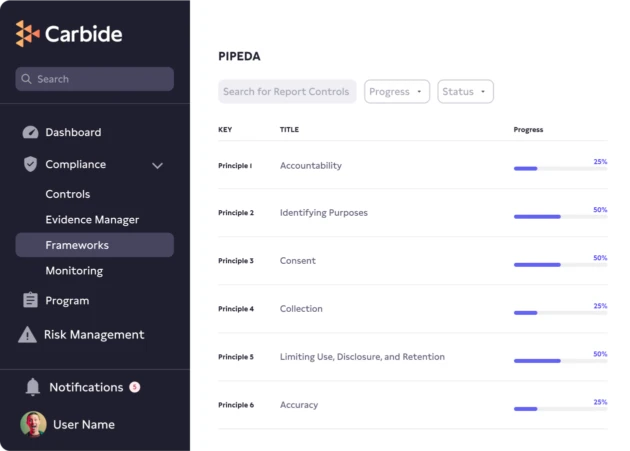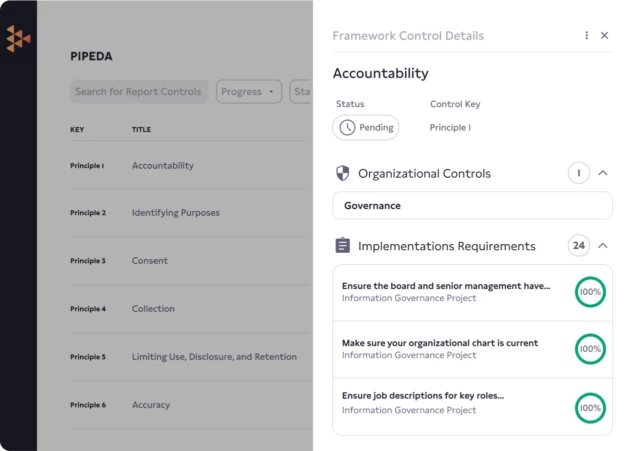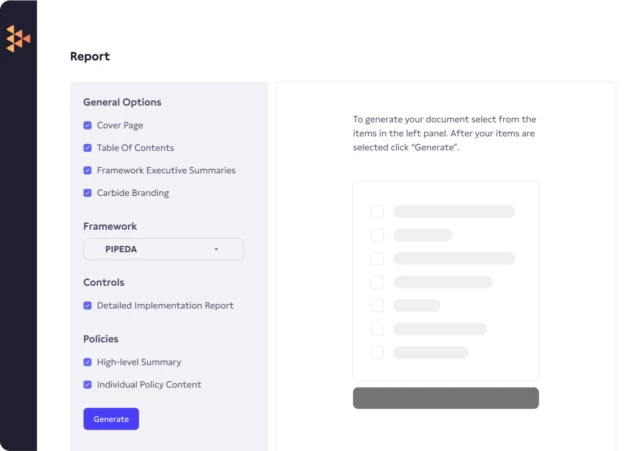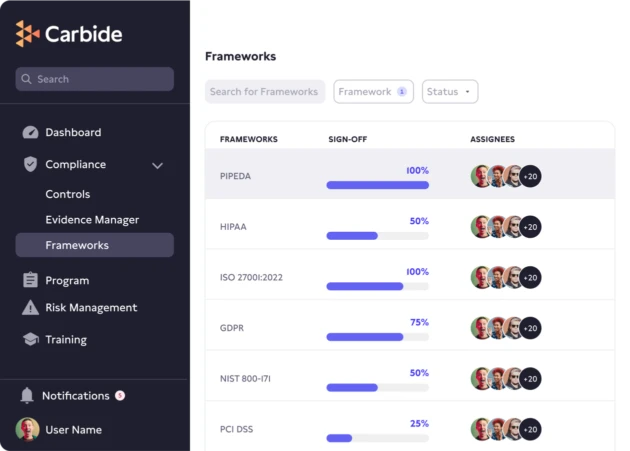Principle 1 – Accountability details the responsibility for personal information under its control and the organization must appoint someone to be accountable
Principle 2 – Identifying Purposes explains the purposes for which the personal information is being collected must be identified by the organization before or at the time of collection
Principle 3 – Consent of the individual are required for the collection, use, or disclosure of personal information
Principle 4 – Limiting Collection of personal information must be limited to that which is needed for the purposes identified by the organization
Principle 5 – Limiting Use, Disclosure, and Retention unless the individual consents otherwise or it is required by law, personal information can only be used, disclosed, or retained for the purposes for which it was collected
Principle 6 – Accuracy explains personal information must be as accurate, complete, and up-to-date as possible
Principle 7 – Safeguards of personal information must be protected by appropriate security relative to the sensitivity of the information
Principle 8 – Openness explains an organization must provide public detailed information about its policies and practices relating to the management of personal information
Principle 9 – Individual Access upon request, an individual must be informed of the existence, use, disclosure, and ability to amend their personal information and be given access to that information.
Principle 10 – Challenging Compliance an individual shall be able to challenge an organization’s compliance with the above principles. Their challenge should be addressed to the person accountable for the organization’s compliance with PIPEDA, usually their Chief Privacy Officer

